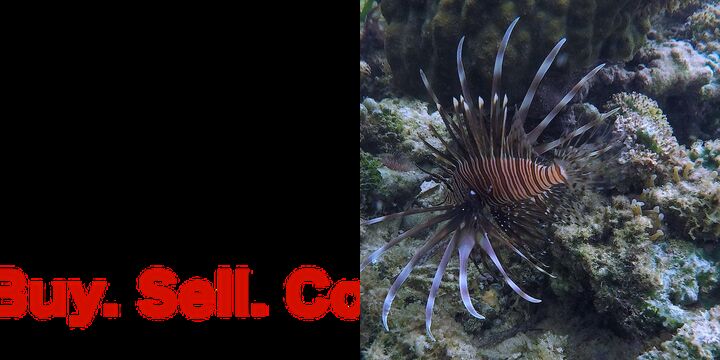LionX
The Problem
Lionfish are an explosive invasive species of the greater Atlantic and Caribbean region that reduce commercial fish stocks while dramatically degrading reef health. Lionfish feed indiscriminately and prey upon any juvenile fish and invertebrates they can fit into their mouths. They are resistant to diseases, can lay up to 2 million eggs year-round, and their free-floating egg masses are easily spread by ocean currents. Invasive lionfish have no natural predators in the South Atlantic and Gulf of Mexico, and studies have shown that they can decrease their fish prey population by up to 90%. Additionally, they can live in a very wide range of water temperature, salinity, and depth (up to 1,000 ft), therefore affecting a huge array of species. Currently the only mean to locally control their spread is through harvest by recreational and commercial scuba divers. The damage to ecosystems and fisheries caused by lionfish directly affects coastal communities and those whose livelihoods rely on seafood and fishery health. In an age of overfishing, climate change, and extreme pollution, lionfish are an added direct threat to the future of reef and ocean health. Increasing the commercial supply of lionfish would lower pressure on fisheries, improve reef health, and provide a new sustainable seafood.
Our Proposal
We aim to connect recreational divers with lionfish processors through an electronic platform to create a large and stable supply of lionfish. Although there is a substantial national demand for the invasive delicacy, it is difficult to sell outside of Florida. As of today, there are few processors willing to accept small quantities of lionfish. The average recreational diver only catches a few pounds per dive. Together, these factors limit the supply of lionfish to consumers. Within Florida, divers can profit from their catch by selling directly to restaurants, though demand and price remain lower compared to the national scale. Our solution is to create an easy-to-use platform that connects recreational divers with local processors. Additionally, we not only want to incentivize small-scale processing facilities to accept lionfish, but we also want to provide resources to local divers to open lionfish processing facilities. Our platform will thus have two sides; divers and processors. After signing up, recreational divers will be able to connect with the nearest lionfish processor by simply entering their location. Divers will then drop off their lionfish and receive a trip ticket for their catch. Then, using their accounts, processors will record depth and location from the trip ticket. The information will automatically be entered and updated into a database available to registered divers in an effort to map lionfish sightings and increase hunting efficiency.
We Assume that...
1) Divers will continue to hunt lionfish both part-time and full-time.
3) Small-scale processors will be willing to accept lionfish or recreational divers will be interested in becoming processors.
2) There will be a sustained national demand for lionfish.
4) Recreational divers and processors will be willing to use our platform.
Constraints to Overcome
Building a network of processors will be the biggest constraint to expansion. By providing a Florida Statewide Saltwater Wholesale Dealer’s License and required processing equipment, we will incentivize divers or local businesses to become lionfish processors. Through lionfish derbies, it has been proven that recreational divers are willing to catch lionfish. The regulations on selling lionfish are simple, and we believe there will be a stable supply from divers so long as there are local processors throughout Florida. Distance from diver to processor is another constraint, which is the reason for implementing local lionfish processors in areas with an abundance of lionfish divers.
Current Work
1) To apply for funding. 2) To create and develop our website and mobile application. 3) To test the website with potential users. 4) Once the website is developed and at a working level, to begin recruiting processors and divers. We have a plan of how to advertise our site and recruit users by attending and sponsoring several lionfish hunting events.
Current Needs
1) We need help and funding for web development. We come from backgrounds in environmental science and need help with the technical side of web development. 2) Once the website is developed, we would need help with user feedback and testing. 3) Advertising and branding.

